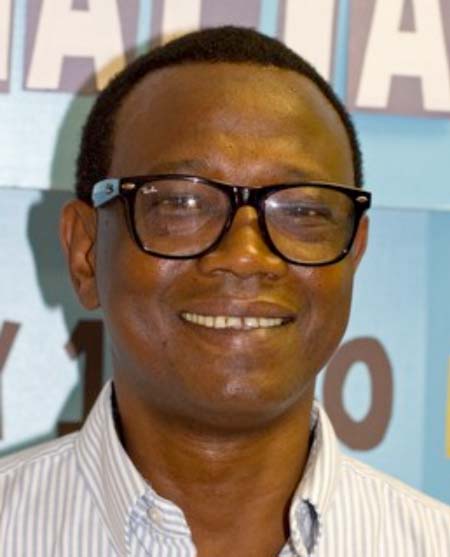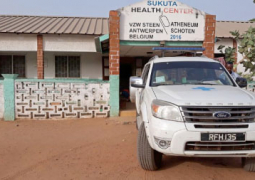
Democracy
is often described as government of the people, for the people and by the
people. That presupposes that while not all the people can hold public office,
their collective will drives the operations of government. The idea is aptly
captured by the concept of popular sovereignty, the idea that political power
rests not in the hands of those that govern, but in the hands of the governed.
The relocation of political power from government to people was one of the key
characteristics of the emergent nation-state system in the 17th and 18th
centuries and remains the defining characteristic of democratic polities to
this day.
In
many cases however, especially in Africa, government of the people, for the
people and by the people is little more than an empty slogan touted as proof of
the existence of democratic regimes. The concept needs to be translated into a
practical reality in all countries that call themselves democratic. The people
must not only be said to be the true holders of political power; they must in
reality be cognizant of that fact and be able to wield political power in
practical terms. They must be able to remove their leaders and governments from
power if they do not work in the interests of the nation whether because of
lack of efficiency or for any other reasons. The question then remains as to
how exactly people will be able to govern themselves and their governments
whether their governments are inclined to be democratic or not.
Our
national experience as Gambians over the past 22 years makes it imperative and
even urgent that we actualize the ideal of government by the people in our
country. Clearly, what obtained both under the Jawara administration and the
Jammeh dictatorship was not a government by the people in the real sense of the
term. Under Jawara, there was a reasonable level of political pluralism.
Regular elections were held and people went to the polls to vote for candidates
of their choice. The same process was enacted with far less credibility during
the Jammeh dictatorship. One tragedy of African politics is that democracy is
equated with the holding of regular elections which, whether free and fair or
not, are considered to be synonymous to the practice of popular sovereignty.
This outmoded conception of democracy cannot be allowed to continue
characterizing the new Gambia. If it did, there would be nothing new about
Gambia. It is time to take our country and our democracy to another level by
making sure that political power is effectively exercised by the Gambian people
both during and outside of election periods. The people should not merely be
called upon once in a while to cast their ballots for our political leadership;
they must be rendered proactive in our day to day politics and be able to do
whatever it takes to hold their leaders accountable and make their voices heard
whenever and wherever it matters.
In
the few months since the Barrow administration took over, things seem to be
looking up in terms of democratic practice in The Gambia. The release of many
prisoners who might have been wrongfully incarcerated by the ousted
dictatorship and especially the fact that a wronged journalist was given access
to GRTS are good signs for our country. The fact that some coalition government
ministers have been responsive to public opinion by publicly admitting their
errors points to the emergence of an aspect of democratic culture that bodes
well for our country. Respect for human rights and the rule of law must
continue to be actively advocated, encouraged and demonstrated by the coalition
government because it will contribute to the building of a solid foundation for
the emergence of a democratic political culture in our country.
But
while government responsiveness to public opinion and respect for human rights
and the rule of law are important steps in the right direction for the
emergence of a functional democratic culture, they still do not make a country
a government of the people, for the people and by the people. That would
require a level of citizen agency that can only be exercised by a people
actively conscious of their power and capable of exercising it. And the only
way people can be actively conscious of their power and become capable of
exercising it is by understanding the source and nature of their power as
contained in their national constitution. Gambians not only need to understand
their constitutional rights and responsibilities under a republic; they also
need to understand the nature and functions of the institutions that govern
their lives under a republic. They need to understand the meaning and
significance of the rule of law; namely that in a constitutional republic no
one is above the law, not even the president. Most Gambians do not think of the
nature of the relationship between public servants like the president,
ministers, MPs, soldiers and the police on one hand and the law on the other.
Many tend to equate these public servants with the law itself. Gambians need to
be fully conscious of the fact that like every other citizen, the president,
ministers, MPs, soldiers and the police must obey the law. They need to know
that the law stands over and above every single person living in the country,
regardless of position or status and that whoever breaks the law needs to be
held accountable for it. They also need
to understand what the separation of powers and checks and balances mean in a
republic, and what the different functions of the Executive, the Legislature
and the Judiciary are. Only then can we have a government of the people, for
the people and by the people.
It is not uncommon to hear arguments to the
effect that the majority of Africans cannot be given an effective political
education because they are not literate in western languages. Given that their
lives are governed by a constitutional nation-state system that operates
through western languages, and considering the low rates of western literacy
across sub-Saharan Africa and in The Gambia in particular, this argument is
tantamount to imposing an interminable prison sentence on the collective
consciousness of our people. We cannot afford to wait for the majority of
Gambians to be literate in western languages before we embark on a process of
political education for the Gambian electorate because that is not likely to
happen anytime soon.
We
contend that language barriers are not obstacles to political education in The
Gambia. Gambians are capable of learning anything and everything about modern
constitutions, political systems, ideologies and institutions in their own
local languages. No concept or theory of the western nation-state system that
govern our people’s lives is so complex as to defy effective exposition,
communication and understanding in Mandinka, Pulaar, Wolof, Sarahule, Manjako,
Jola, Serer, Bambara, Mansuanka or any of our national languages. A
well-crafted political education curriculum taught by well-qualified
professionals will effectively educate our people on their national
constitution and remove the anomaly between political perception and political
reality that renders them perpetually unsure how to deal with their government.
It will give our people enough knowledge of their constitutional rights and
responsibilities and the limits of constitutional authority which will
politically empower and render them capable of holding their leaders and
governments accountable. And it would
represent momentous progress towards the actualization of a true government of
the people, for the people and by the people.
In
addition to obtaining knowledge of their constitutional rights and
responsibilities and the nature and functions of the various organs of
government, Gambians need to also distinguish the subtle but very important
differences between leaders and rulers or mere power-wielders. On the surface
it may appear that these terms are essentially the same.
However,
leadership has certain moral, ethical, persuasive and positively interactive
undertones and connotations that rulership does not. Ruling or power-wielding
is more of a top-bottom regime of command, control and coercion. Leadership on
the other hand, is more of a horizontal, multi-directional process of
interaction and mutual influencing largely devoid of coercion and guided by
certain unassailable moral and ethical standards of behavior that equally
applies to both governors and governed.
In
a rulership situation, rulers insist on ruling from the front and the top. In a
leadership situation, leaders lead as much as they are led. This distinction
needs to be made clear to all citizens to prevent unjust power wielders who
lack legitimacy from lording it over them while strutting around draped in
over-flowing gowns and wearing funny hats, or carrying strings of bogus titles
after their names in a bid to appear big, relevant and mysterious.
Overall,
our point is that in order to establish a true democracy in the new Gambia, we
must enhance the emergence of a new, politically enlightened and empowered
Gambian. This we can do through a regime of healthy political education in both
English and our local languages. Simplified versions of our constitution need
to be required parts of all our school curriculums, from around grade 4 in
elementary school. From high school right through undergraduate studies,
Gambian students must be required to take courses not in the usual civics
lessons, but in Gambian Studies, including Gambian history and Gambian
Constitutional and Political Studies. Hence, we advocate the establishment of
an Institute for Gambian Studies at the University of The Gambia that will
oversee this important work of universal political education for all Gambians.
Until
Gambians understand the constitution and institutions that govern every facet
of their lives, until they are enlightened and empowered through effective
political education to hold their leaders accountable, our country will be
stuck in a never ending cycle of ineffectual and docile governance, potential
dictatorship and civil conflict that no amount of foreign intervention or
foreign aid can stop.
The
Gambian people need to govern themselves in a very practical sense of the term.
We need to start building a true government of the people, for the people and
by the people.
Read Other Articles In Article (Archive)
Islam: Quintessential and Universal Submission (P.13)
Jul 16, 2010, 2:09 PM
Journalists trained on health reporting
Mar 11, 2014, 10:09 AM


